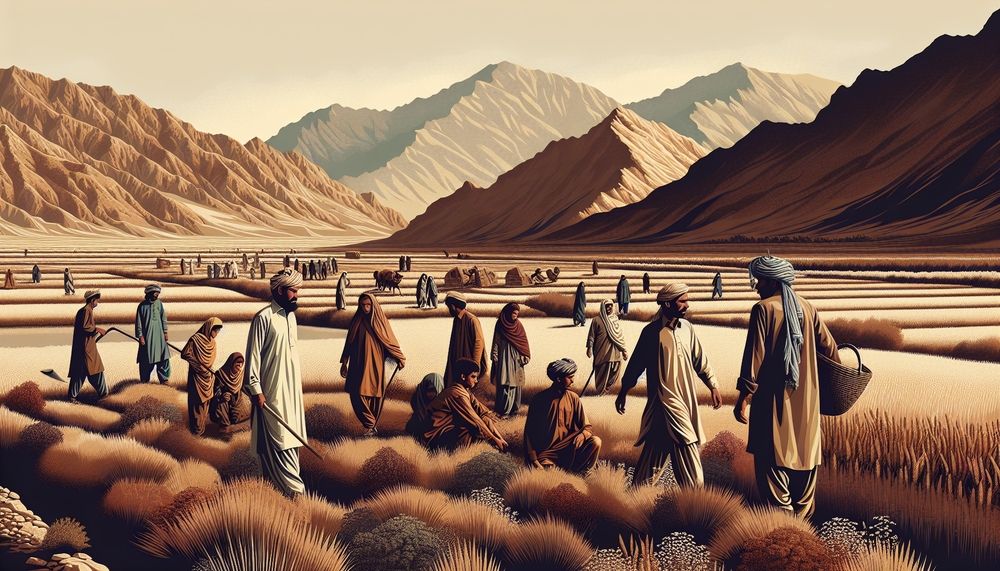Published
- 3 min read
Balochistan's Struggle: The Unyielding Fight for Rights and Recognition

Balochistan’s Struggle: The Unyielding Fight for Rights and Recognition
In recent years, the Baloch people of Pakistan have resolutely stood against repression, demanding basic human rights with peaceful protests. These efforts underscore their resilience and highlight significant geopolitical issues in the region. The movement, spearheaded by organizations such as the Baloch Yakjehti Committee (BYC), seeks to amplify the voices of Baloch people who have long been underrepresented and marginalized.
A Confluence of Voices: Baloch Women Leading the Charge
Baloch women have emerged as a formidable force in this struggle. Their leadership is evident in rallies organized across Balochistan, defying state-imposed internet shutdowns and clampdowns. The courage displayed by these women draws attention to the critical issue of gender dynamics in geopolitical conflicts.
The transformation in leadership from traditional tribal chiefs to a new generation of educated and articulate young Baloch leaders represents a significant cultural shift. This shift facilitates a new narrative focused on peace and human rights, resonating not only within Balochistan but also on international platforms.
The Looming Shadow of State Repression
Despite the peaceful nature of these protests, the state response has been increasingly severe. Law enforcement’s heavy-handedness, witnessed in the January crackdown on a women’s protest in Karachi, marks a disturbing trend of human rights violations. These actions reflect a broader pattern of state repression against dissenting voices, raising concerns about Pakistan’s approach to resolving internal conflicts.
A Resource-Rich Yet Impoverished Region
Balochistan is paradoxically one of Pakistan’s poorest provinces despite its wealth of natural resources. Wealth generated from resources like oil, gas, and minerals largely benefits the federal government, leaving the local populace impoverished. The misuse of Balochistan’s resources is compounded by corrupt practices of some tribal leaders, further perpetuating inequality and suffering.
Moreover, developments such as the China-Pakistan Economic Corridor (CPEC) have added complexity to the region’s geopolitical landscape. While this infrastructural initiative promises economic growth, the Baloch people argue that it furthers economic disparity, leaving their communities in disarray without tangible benefits.
The Persistent Plight of the Disappeared
Enforced disappearances are a grim reality for the Baloch, fueling their grievances against the state. Thousands of individuals are believed to have been taken by authorities, leaving families in anguish. This humanitarian issue remains at the forefront of Baloch demands, yet state acknowledgment and resolution of these disappearances remain elusive.
Amid this crisis, voices like that of Mehnaz, a mother whose son has been missing, emphasize the personal tragedies that underpin the broader geopolitical struggle. The continued activism of these individuals indicates the deep-rooted pain and desire for justice within the community.
Opportunities for Peaceful Resolution
Despite its complexities, the situation in Balochistan presents an opportunity for Pakistan to address long-standing grievances through peaceful dialogue. Allowing peaceful dissent could pave the way for greater stability. Encouragingly, recent large-scale gatherings have demonstrated the potential for unifying the Baloch people in nonviolent advocacy.
However, the state’s persistent crackdowns on peaceful assemblies and cultural initiatives, such as the disrupted Baloch book fair, perpetuate the cycle of mistrust and conflict.
The Global Responsibility
International awareness and pressure are crucial to forging a path toward a resolution. The global community must call for an end to human rights abuses in Balochistan and promote policies that acknowledge the region’s legitimate grievances. Ignoring Balochistan’s plight risks allowing turmoil to persist, potentially destabilizing the broader geopolitical region.
The courage of the Baloch people, underlined by figures like Jamal Aziz, serves as a powerful testament to their endurance in the face of adversity. As young leaders continue to drive the movement for change, the international community’s support becomes ever more essential. Only then can peace, justice, and equitable development be achieved in Balochistan.
